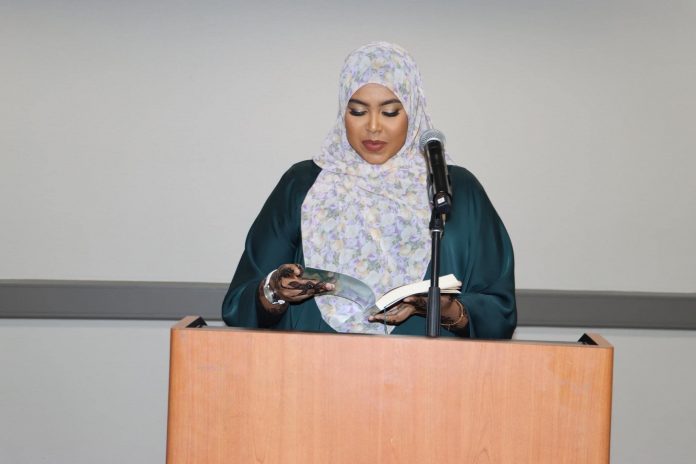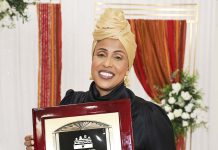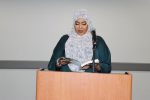
When she’s not working her day job as a medical device engineer, Fadumo Yusuf writes the stories her younger self yearned for.
“I never saw myself represented in the books I read, so I decided to become the change that I wanted to see,” Yusuf said during a recent signing for her new novel at the Doubletree hotel in Bloomington, Minn.
The book, Ebyan, Waqti iyo Waayaha Jacayl, is Yusuf’s first novel written in the Somali language. Her first, Ayan, of the Lucky was in English. Yusuf, whose family fled Somalia when she was a young child, said that writing is her way of retaining her culture. Ebyan follows a Somali love story, and focuses on themes of heartbreak, healing, and leaning on the community that one is surrounded by. Yusuf said it was important for her to write a book that she and the youth in her family could relate to.
Black authors are severely underrepresented in English book publishing in the United States. Of the more than 7,000 authors in the United States, a measly 5.8% identify as Black or African American, even though they make up 14% of the population. The publication of books in African languages is even less common because many Africans prefer European languages and Arabic, which are more useful in conducting global business. For example, Somali linguists have expressed concern that their language could become “endangered” as a result of many Somalis now embracing Arabic. Authors like Yusuf aim to preserve their heritage and restore pride by writing in their African languages.
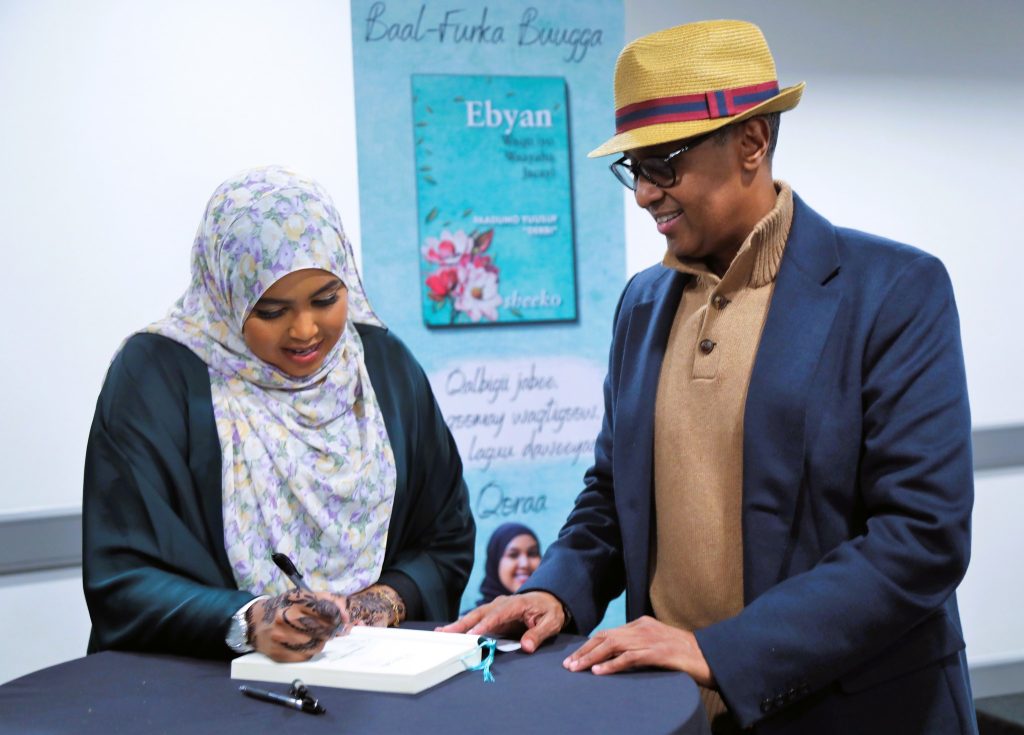
“I’ve been trying to teach my siblings and cousins Somali,” Yusuf said. “I am hoping to create more books that they can relate to.”
Minnesota is home to over 70,000 people of Somali descent, more than any other state in the nation, according to according to Minnesota Compass. Thousands of Somalis fled the East African country after war broke out in 1991. Many ended up in Minnesota because the state’s resettlement agencies have had a long history of welcoming refugees from all over the world. Additionally, Minnesota’s robust economy and relatively low unemployment rates have made the state a hot spot for new arrivals seeking a high quality of life. The highest concentration of Somalis in Minnesota is in Minneapolis, with the majority residing in the Cedar-Riverside, Phillips, and Elliot Park neighborhoods.
Sheikh Shuaib, a member of the Somali community, echoed Yusuf, saying that if more books are not written in Somali, the language would be at risk of dying. Shuaib also said that the future of preserving the language and culture rests in the hands of the next generation.
“It is so important to the future of Somali heritage for us to have young people writing books like this,” Shuaib said.
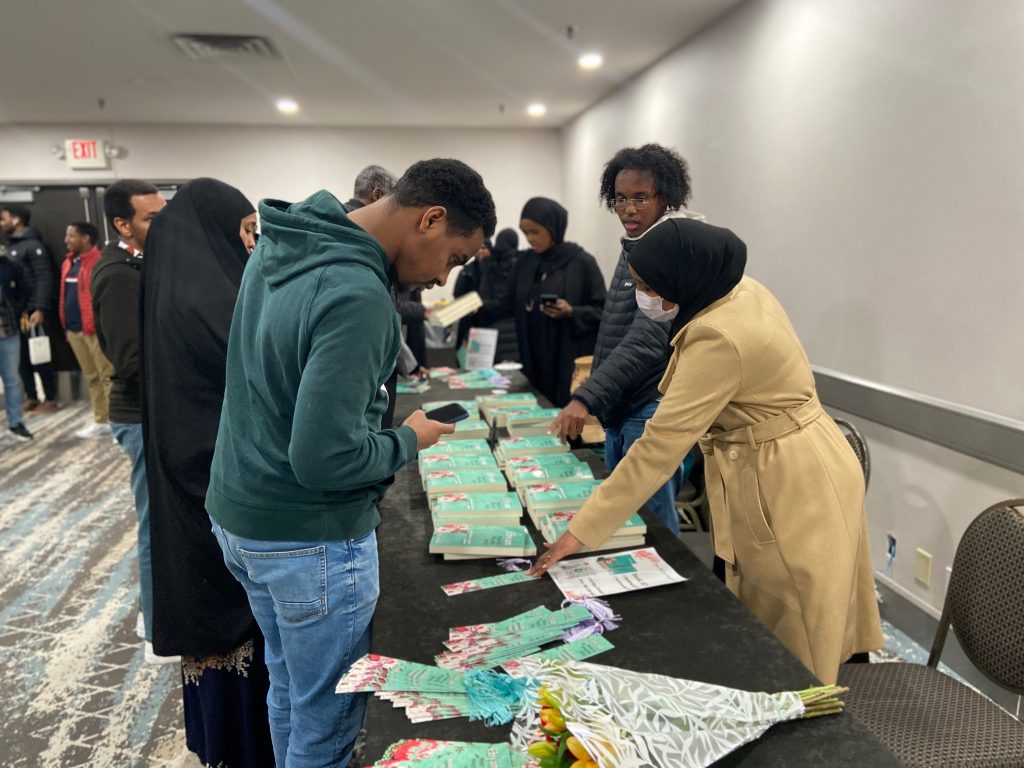
Yusuf’s cousin Faduma Omar, talked about how the book trailblazes in a culture where romance in media is still considered a taboo. Omar described her cousin as a “pioneer” for being bold enough to address themes that often are not discussed openly in the Somali community such as heartbreak and healing. Having grown up in the West, Omar said it she does not regularly see books written in Somali, and so seeing Ebyan on the shelves defying cultural norms made her especially proud.
“She’s changing the culture and how we talk about love,” Omar said. “It also makes me want to learn the language more because I can only understand some of it.”
Zakaria Illeye, 19, said like many children of immigrants, he had not seen his country of his parents. Still, he said that he tried to engage with Somali culture in whichever ways that he can. Illeye said that he was excited to see the young people like him reading Ebyan to carry the culture forward.
“It’s a romance book, so I can see it resonating with the teens,” Illeye said. “Just because many of us haven’t seen Somalia doesn’t mean we can’t engage with our culture.”
Author’s website: fadumoyusuf.com.
This story was updated to reflect this is Fadumo Yusuf’s second novel and not her first.
About Panashe Matemba-Mutasa, Mshale Reporter
Panashe is a general assignments reporter. She is a graduate of the University of Minnesota and a UC Berkeley Graduate School of Journalism Class of 2025.

